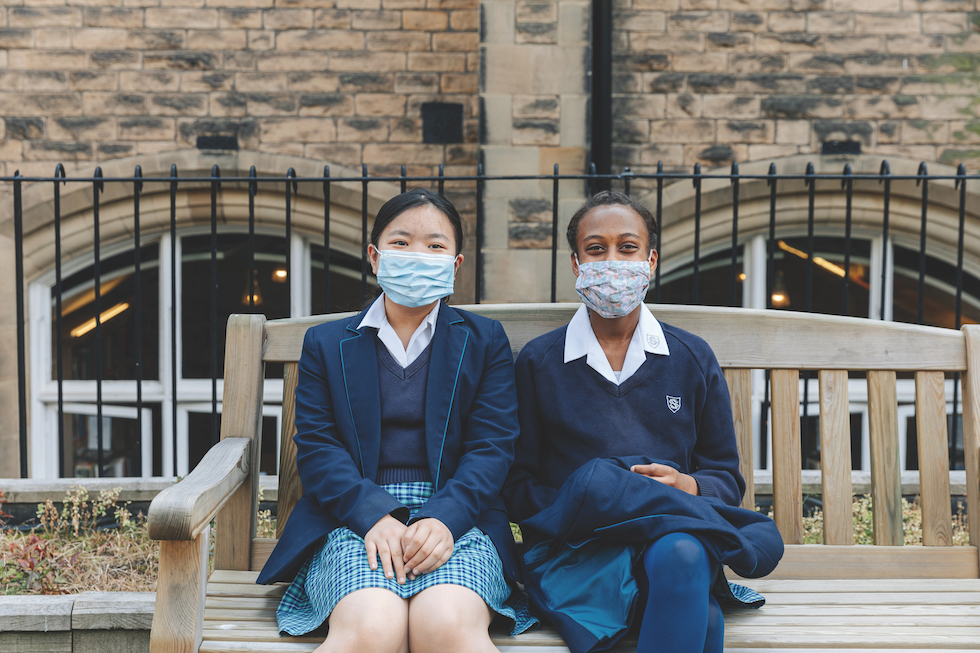Supporting Key Workers
By
4 years ago

Independent schools are working hard to support key workers and their children, says Victoria Lambert

When the pandemic hit the UK last spring, independent schools around the country sprang into action. Uppermost in the minds of many were the parents who had suddenly been left with reduced or no income and who might be worried about the chance of their children remaining in school when fees could not be paid.
Sam Davies, head of philanthropy at the Girls’ Day School Trust (GDST), which runs 23 fee-paying schools and two academies across England and Wales, says that there was overwhelming concern at her organisation. ‘We asked ourselves,’ she says, ‘how could we ensure girls continued in their schools after this event, which was clearly not their fault?
‘We were aware that families were suffering a significant impact and we wanted to be consistent in our approach in all the schools, regardless of how badly that area had been affected at that point.’
Her fears were widely shared. As a result, a remarkable effort among independent schools has been made to support families in need, especially those where parents are key workers and been keeping the nation going, whether in the NHS, public sector work, like government, or the logistics needed to prevent food shortages.
At Reigate Grammar School (RGS), for example, bursaries are now available through a new NHS Scholar initiative. RGS decided to recognise the ‘outstanding work of front-line staff within the NHS and related services’ by providing ten assisted places reserved for the children of parents who work within the NHS and care sectors, including nurses, paramedics, porters, cleaners and support services.
For Ceri Jones, headmaster of Caterham School, supporting key worker families to access independent education was already a key aim. ‘Our growing bursary support for families who couldn’t otherwise access a transformational education at Caterham School is core to our purpose and 2020 has only sharpened that focus,’ Jones says. ‘Our current campaign, launched just 18 months ago, has already seen a group of children supported to join the school and their futures opened up. This year we have seen bursary recipients who are children of key healthcare workers leave to progress on to a career in medicine and join a raft of Caterhamians already working in the health care front line globally.’
The GDST central fundraising team has also launched a recent bursary appeal as the trust celebrates its 150th anniversary in 2022. ‘We pivoted that to also raise money for a central hardship fund at once, which any parent could apply to,’ says Davies.

But the GDST didn’t just want to offer a grant-making fund; it was also able to offer some families payment holidays, offering them longer to pay fees. ‘We have really felt the GDST family coming together in hard times,’ Davies recalls. ‘Parents who have not been impacted by the COVID crisis have donated to the hardship fund.’
And support hasn’t just been focused on fees, she says. The GDST raised £25,000 to provide laptops for children at the group’s two academies, helping to bridge the digital divide.
Caterham also saw this as a community effort. ‘Parents, pupils and alumni raised a massive £7,000 during lockdown for the school’s local NHS charity, SASH, through the school’s Saturday night lockdown quiz,’ Jones says. ‘The funds helped the charity provide above and beyond the core hospital treatment, including additional medical equipment and care.’
He adds, ‘The Caterham global family showed a phenomenal effort of support for the local community with the donation and delivery of 10,000 pieces of PPE for the local Primary Care Network. The PPE provision will support the local care network through the autumn and winter months. The delivery was fundraised, sourced, arranged and donated by the Caterham community.’
Jeremy Thomas, a physics teacher at Abingdon School in Oxfordshire, became involved in supporting children of key workers through his position as co-ordinator of the Abingdon Science Partnership (ASP), the school’s science outreach project.
When lockdown happened, Thomas was preparing for the local science festival due to be held the following week. ‘We were already talking to partner schools with events lined up,’ Thomas says, ‘so we thought, “what can we do instead?” We knew we wanted to support classroom teachers and offer enhancement lessons.’
What that meant was creating science worksheets that could be used by the children of key workers in school, or shared at home. Before long, Thomas was filming versions of the workshops so there were visible demonstrations. He showed how lever and pulley systems worked, for example, making the video in his back garden.
At first, the ASP resources were mostly picked up by primary schools but other projects emerged. Thomas runs a GCSE astronomy class after school for pupils from his own and partner schools. During lockdown, a parent from Oxford Spires Academy heard of it and asked permission for her daughter to join in.
The value of offering science lessons in addition to the key areas of maths and English, which many junior schools were focusing on, was bringing variety to the children, he says. ‘There were wellbeing issues; their parents were stressed. This was something different to do, and was often hands-on.’
His own pupils have been keen to support the initiative too; a group of year ten to 13 boys run a science club for the junior school, which can count towards their Duke Of Edinburgh awards. ‘They were upset when told they couldn’t do it over the summer term. So they began meeting over Zoom every week instead and now they’ve produced resources of their own for the club, like videos and online workshops.’
It hasn’t been easy for schools to start changing the way they provide support, says Kate Jillings, founder of ToucanTech, which works with schools to create fundraising programmes. ‘Setting up a new bursary fund can take a school several months in the best of times, but Covid made it even harder. Many school fundraisers were furloughed throughout April and May and most school leadership teams were in firefighting mode to
move learning online.’

Every school ToucanTech works with has done some sort of community outreach in response to Covid, she confirms, from setting up a new fund, adapting an existing bursary programme, running a phone project for vulnerable alumni or sharing health advice via newsletters and virtual events.
‘West Buckland School Foundation set up their emergency fund within six weeks,’ she says, ‘with a constitution and terms agreed by governors and enough funds raised by the summer term to support 28 families with fee rebates. Cheadle Hulme School was also quick to take action in a different way – by mid-April, it raised £3,000 and had made thousands of protective face shields to donate to the NHS.’
Jillings adds that ‘Capital campaigns for new buildings, say, were paused across most of the country and development directors struggled to get in front of decision-makers; one told me he’d resorted to catching his head in the car park to sign off a fundraising appeal.
‘Nevertheless, most of the schools we work with haven’t reported much drop-off in their regular giving and support for bursaries. In the six months from the onset of the pandemic, 30 of our UK schools raised £805,000 collectively for their bursary funds. Much of this financial support will be channelled to families impacted by Covid. Of these schools, 19 – including Clifton High School, Summer Fields and Royal Grammar School, Worcester – created specific hardship funds to support families in need.’
The crisis will undoubtedly mean more families need bursaries in the future, says Sam Davies. ‘Obviously, we don’t know how much longer this will go on and getting people through it is critical.
‘But we can also see that progress in social mobility has been wiped out by the pandemic, with modern inequalities exposed. Before the crisis, we were already overwhelmed with applications for bursaries and we predict that can only increase. However, we are committed to increasing the funds available and will be looking to talk to those companies that have done well during the pandemic or creating partnerships with those sectors which are underrepresented in terms of women on staff and our pupils.’
Jillings sees no end to the current demand for bursaries either. She concludes, ‘I’d argue every fee-paying school should be considering how they can fund a bursary or financial assistance programme into next year and beyond.’
This article was originally published in the 2020/21 issue of Scholarships & Bursaries
Read more about sporting scholarships here



